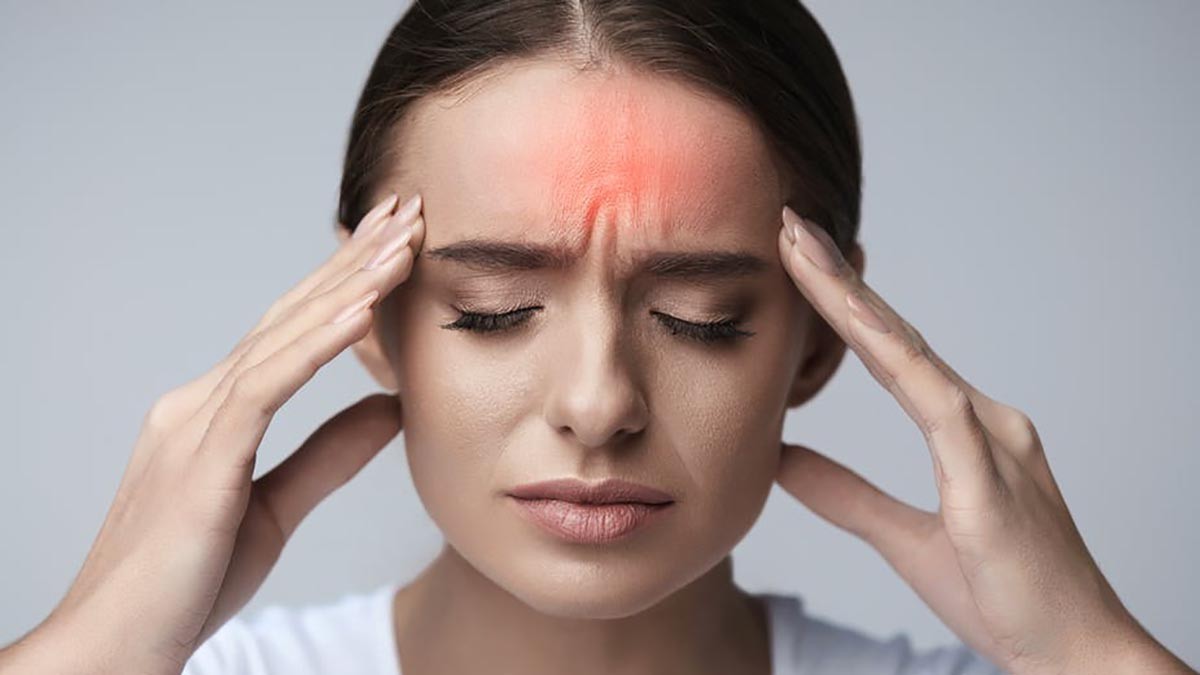Many women experience headaches caused by changes in their hormones.
According to the National Migraine Centre, more than half of women who get migraines notice a link with their periods. These so-called "menstrual migraines" tend to be particularly severe.
Migraine is most likely to develop in either the 2 days leading up to a period or the first 3 days during a period. This is because of the natural drop in oestrogen levels at these times.
The attacks are typically more severe than migraines at other times of the month and are more likely to come back the next day.
Periods are not the only trigger of hormone headaches.
Other causes include:
Signs of hormone headaches
It's worth keeping a diary for at least 3 menstrual cycles to help you check whether your migraines are linked to your periods.
If they're linked, a diary can help to pinpoint at what stage in your cycle you get a migraine.
Self-help tips
If keeping a diary reveals that your headaches develop just before your period, you can try these tips to help prevent a migraine:
Try to avoid heavy meals and junk food, and have more vegetables.
Have a regular sleep pattern.
Improve the way you cope with stress. We can't eliminate stress but we can improve the way we respond to it.
Continuous contraceptive pills
Talk to your doctor if you think your contraceptive pills are making your migraines worse.
If you have headaches during the days you do not take the pills, you can avoid the sudden fall in oestrogen by taking several packs continuously without a break.
https://www.nhs.uk/conditions/hormone-headaches/
According to the National Migraine Centre, more than half of women who get migraines notice a link with their periods. These so-called "menstrual migraines" tend to be particularly severe.
Migraine is most likely to develop in either the 2 days leading up to a period or the first 3 days during a period. This is because of the natural drop in oestrogen levels at these times.
The attacks are typically more severe than migraines at other times of the month and are more likely to come back the next day.
Periods are not the only trigger of hormone headaches.
Other causes include:
- the combined pill (combined oral contraceptive pill) – some women find their headaches improve while they're on the pill, but others report more frequent attacks, especially in the pill-free week, when oestrogen levels drop
- the menopause – headaches usually worsen as you approach the menopause, partly because periods come more often and partly because the normal hormone cycle is disrupted
- pregnancy – headaches can get worse in the first few weeks of pregnancy, but they usually improve or stop completely during the last 6 months; they do not harm the baby
Signs of hormone headaches
It's worth keeping a diary for at least 3 menstrual cycles to help you check whether your migraines are linked to your periods.
If they're linked, a diary can help to pinpoint at what stage in your cycle you get a migraine.
Self-help tips
If keeping a diary reveals that your headaches develop just before your period, you can try these tips to help prevent a migraine:
Try to avoid heavy meals and junk food, and have more vegetables.
Have a regular sleep pattern.
Improve the way you cope with stress. We can't eliminate stress but we can improve the way we respond to it.
Continuous contraceptive pills
Talk to your doctor if you think your contraceptive pills are making your migraines worse.
If you have headaches during the days you do not take the pills, you can avoid the sudden fall in oestrogen by taking several packs continuously without a break.
https://www.nhs.uk/conditions/hormone-headaches/
